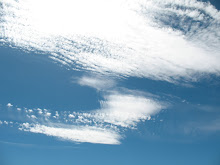The following is quoted from a National Geographic Article by James Owen in 2006:
In India (see map) the Gangotri Glacier, the source of the Ganges (or Ganga) River, is retreating at a rate of 75 feet (23 meters) annually.
The report also noted that air temperatures in the region have risen by 1.8°F (1°C) since the 1970s—twice as much as average warming in other northern hemisphere countries over the same time period.
Jennifer Morgan, director of WWF's Global Climate Change Program, says glacial melting will also increase the volume of water in rivers, causing widespread flooding.
"But in a few decades this situation will change, and the water level in rivers will decline," she added.
Over time, as the glaciers become smaller, seasonal melt will decrease and contribute less water to annual river flows.
For example, researchers at the National Institute of Hydrology in Roorkee, India, estimate that reduced glacier meltwater would cut July-through-September river flow of the Ganges by two-thirds.
This decline would leave 500 million people and 37 percent of India's irrigated land short of water.
Monday, January 11, 2010
Subscribe to:
Post Comments (Atom)

No comments:
Post a Comment